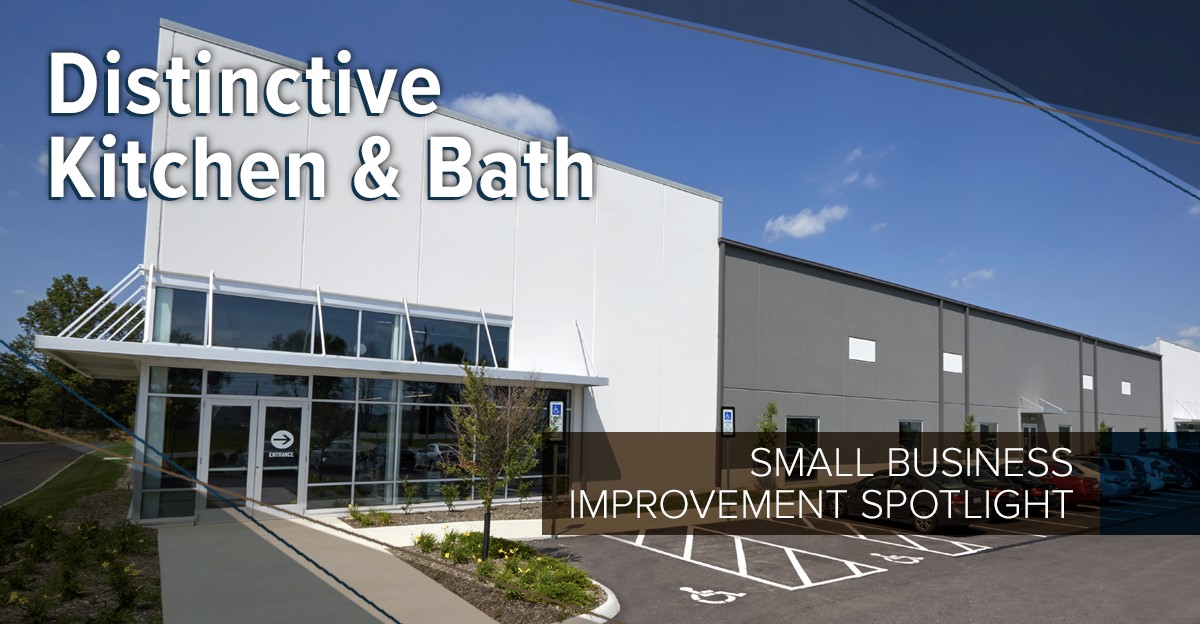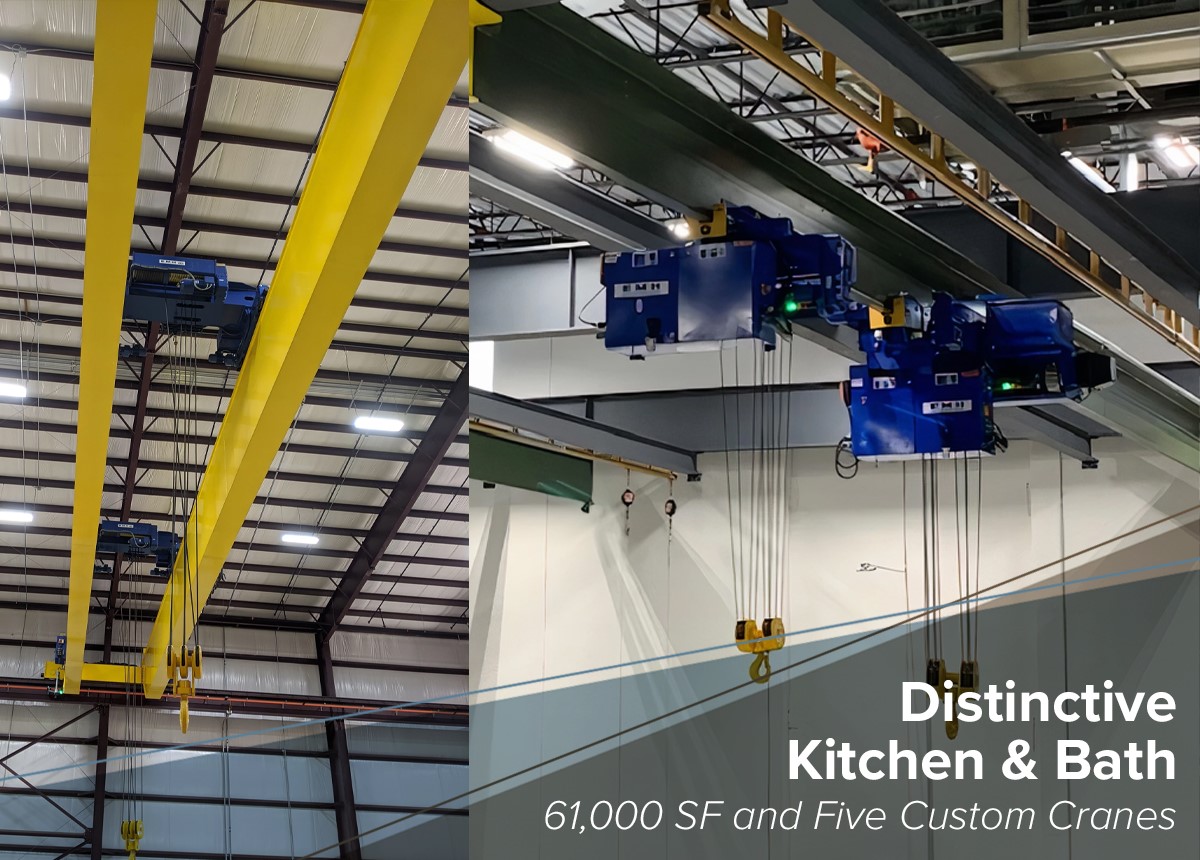
Neighborhoods are the bedrock of any city. Whether they’re established or emerging, investment and employment create the stability necessary to thrive and survive tough times. So when Distinctive Kitchen & Bath was ready to expand, Columbus-Franklin County Finance Authority’s new Neighborhood Improvement and Small Business Loan program was the ideal option.
Before becoming Ohio’s largest fabricator of granite and quartz countertops, Distinctive Kitchen & Bath started in 1994 like most small shops, providing opportunities to those full of ambition but short on experience. One of those hires was a college student and football player at Capital University named Jon Rupert. Though he eventually relocated after graduation, he remained in the industry and continued his mentoring relationship with the founder. In 2013, Rupert returned to Columbus and purchased the company where he’d started as a temporary employee a decade earlier.
But expansion doesn’t come easy, and serving the needs of retail customers, and commercial clients like Home Depot, can quickly consume small businesses struggling to keep up with costs, despite high demand. That’s why the Neighborhood Improvement and Small Business Loan program was the right play. Funding up to $500,000 for organizations with fewer than 100 employees, is available for land and building costs, construction and renovation, as well as machinery and equipment. With no penalty for prepayment, it can serve as a stopgap solution. But with terms up to 15 years at 2.5 percent, it’s among the most affordable and flexible financing options available in Franklin County for profit and not-for-profit organizations that require more time to recoup their investments.
Earlier upgrades in CNC equipment and the acquisition of showroom space combined Rupert’s retail and commercial efforts into a single endeavor. However, continued growth was still limited by the size of both facilities. Distinctive’s new 61,000 SF space, with 10,000 SF dedicated to an on-site showroom and offices, will put the entire operation under one roof.
“We started looking for a new building nearly two years ago, just about the time COVID hit. Business slowed down briefly, but the increase in remodeling and multi-family home construction soon exceeded our ability to keep up,” explained Rupert. Limited space required three shifts, 24 hours a day, which he expects to bring back to two shifts once the new facility is completed in February. “Our lead time for customers is currently six to eight weeks, but we hope to get that down to two to three weeks, creating 30 jobs over the next two years.”

Though there’s still no challenge too big for Rupert to tackle, the project required a lot of heavy lifting, literally. Distinctive Kitchen & Bath applied their low-cost loan toward the purchase of five new cranes necessary to move the massive slabs of stone used to create their custom countertops, which sometimes weigh several tons.
“I was introduced to the loan program through CFFA Vice President Patty Huddle. We were using forklifts, but cranes improve our safety and efficiency,” Rupert noted. “Like our countertops, the cranes we use are also custom made. The ease of financing through CFFA helped maintain our timeline. I felt like Patty was on my team. She was there to make things happen.”
The past two years have been a struggle for businesses of every size, though small businesses have been especially hard hit. CFFA’s Neighborhood Improvement and Small Business Loan program helps more than just the companies that use it for financing. It provides flexibility for manufacturers to increase production and avoid supply chain disruptions that have downstream consequences.
According to the SBA, small businesses make up about 99 percent of employers in the United States. CFFA is proud to enable companies like Distinctive Kitchen & Bath to affordably expand when the opportunity is right, and keep people working elsewhere whose jobs depend on the products they produce.
